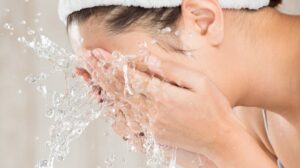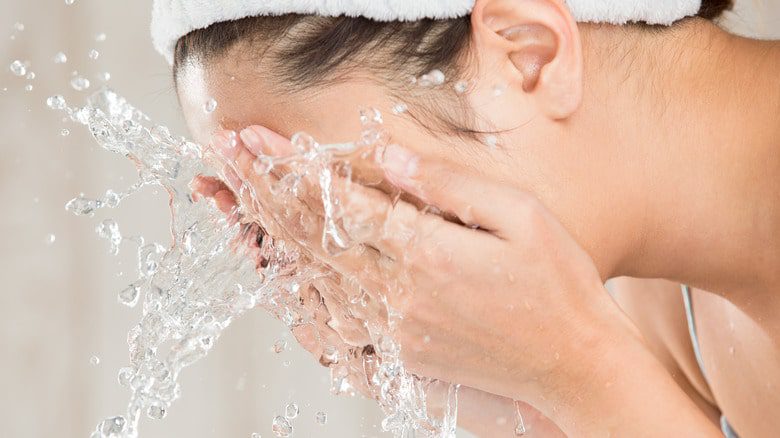Facial treatments have surged in popularity, with the global market valued at approximately $13.5 billion in 2023 and projected to reach $21.2 billion by 2028, according to Grand View Research. These treatments, ranging from deep cleansing to anti-aging facials, promise significant skin benefits. For example, regular facials can improve skin texture by up to 30%, reduce acne lesions by 60%, and boost hydration levels by 40%, as noted by the American Academy of Dermatology.
Signature facial treatments in Dubai are particularly sought after for their luxurious and effective results. However, post-facial care can significantly influence these treatments’ effectiveness. A survey by the International Spa Association (ISPA) reveals that 70% of estheticians recommend waiting at least 6-8 hours before washing the face after a hydrating facial to maximize results. Understanding how and when to wash your face post-treatment is crucial for preserving the benefits and protecting your skin.
The Importance of Facial Treatments
Facial treatments address various skin concerns, including acne, hyperpigmentation, dryness, and signs of aging. According to the American Academy of Dermatology, facials can:
- Improve Skin Texture: Facials that include exfoliation can enhance skin texture, with studies indicating a 30% improvement in skin smoothness.
- Reduce Acne Lesions: Regular facials can reduce acne lesions by up to 60%, particularly when incorporating deep-cleansing and extraction techniques.
- Enhance Hydration: Hydrating facials can boost skin hydration levels by up to 40%, contributing to a more plump and radiant complexion.
The Role of Post-Facial Skincare
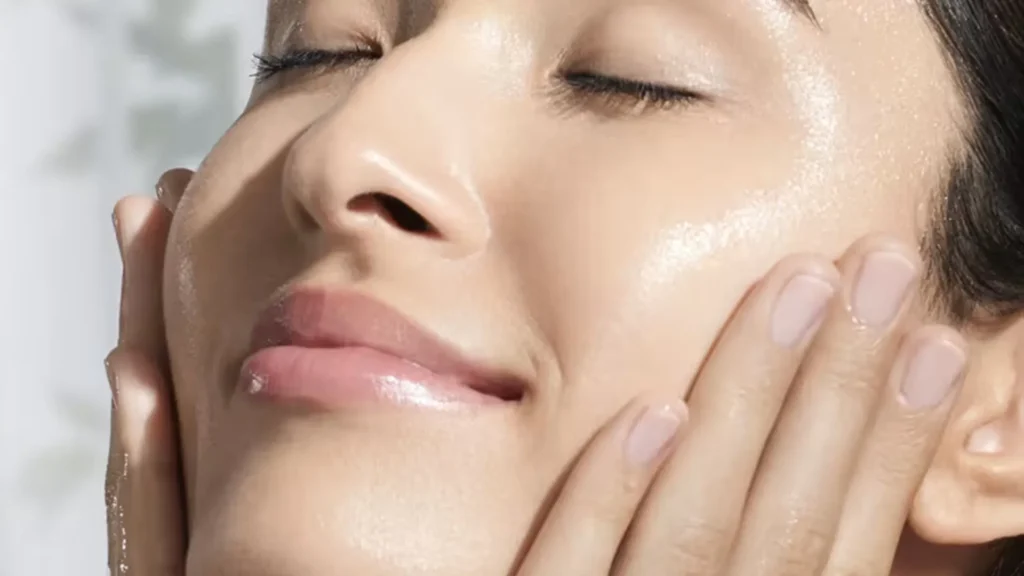
Post-facial skincare is crucial for preserving the benefits of the treatment and ensuring that the skin remains healthy and balanced. The skin’s condition following a facial can vary based on the treatment type:
Immediate Effects of Facials
- Increased Sensitivity: Facials that involve exfoliation or extractions can leave the skin more sensitive. A study published in the Journal of Clinical and Aesthetic Dermatology found that 50% of individuals experience increased sensitivity immediately after such treatments.
- Product Residue: Many facials use high-potency serums and masks that may leave residues on the skin. Research from the Journal of Cosmetic Dermatology suggests that allowing these products to absorb properly can enhance their efficacy by up to 20%.
- Hydration and Nourishment: Facials often include the application of hydrating products. According to a survey by the International Spa Association (ISPA), 80% of estheticians recommend waiting at least 6-8 hours before washing the face after a hydrating facial to maximize the benefits.
Washing Your Face After a Facial
To Wash or Not to Wash?
Deciding whether to wash your face immediately after a facial depends on the type of treatment you received and your skin’s current state.
- Hydrating Facials: For treatments focused on hydration, it is generally recommended to avoid washing your face immediately. This allows the hydrating ingredients to continue working. A survey by ISPA found that 70% of estheticians recommend waiting 6-8 hours before washing your face after a hydrating facial.
- Deep Cleansing and Exfoliating Facials: If your facial included deep cleansing or exfoliation, it is advisable to wait 24 hours before washing your face. Research published in Dermatologic Surgery indicates that waiting 24 hours helps prevent post-inflammatory hyperpigmentation in up to 15% of cases, especially in individuals with darker skin tones.
- Chemical Peels: For more aggressive treatments like chemical peels, it is often advised to follow your esthetician’s recommendations. A study in the Journal of the American Academy of Dermatology reports that improper post-peel care can lead to complications in approximately 15% of cases. Most experts recommend waiting 48 hours before washing your face to allow the peeling process to proceed without interference.
Best Practices for Washing Your Face After a Facial
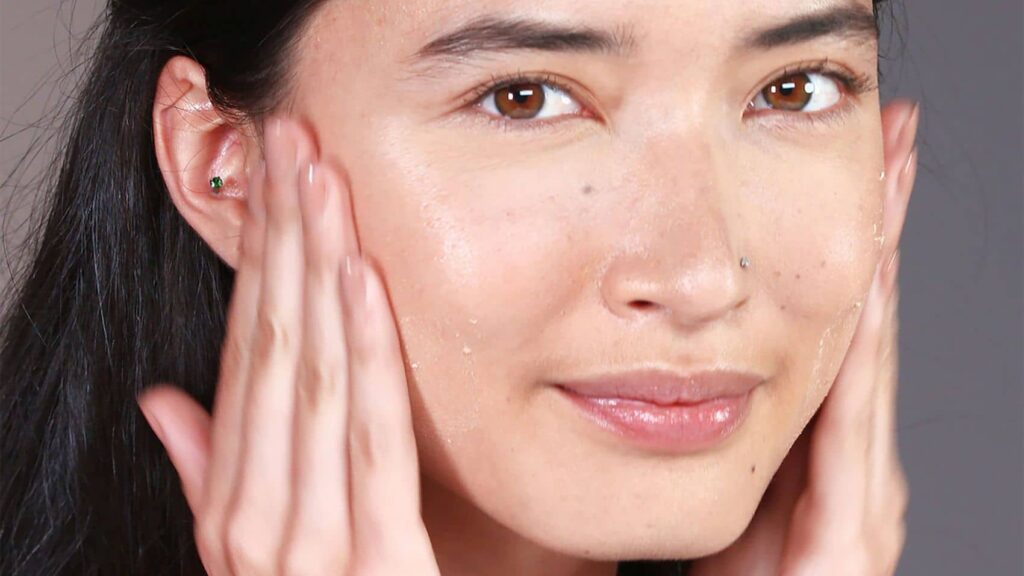
- Use a Gentle Cleanser: Once the recommended waiting period has passed, use a mild, non-irritating cleanser. According to a study by the American Journal of Clinical Dermatology, gentle cleansing helps maintain the skin barrier, which is crucial after treatments that disrupt the skin’s natural defenses. The global market for gentle cleansers is growing, with a projected increase of 6.5% annually from 2024 to 2029, reflecting their increasing popularity.
- Avoid Hot Water: Use lukewarm water instead of hot water. Research published in the Journal of Investigative Dermatology indicates that hot water can strip the skin of natural oils, leading to increased dryness and irritation. About 45% of dermatologists recommend lukewarm water for facial cleansing to minimize sensitivity and maintain hydration.
- Pat Dry, Don’t Rub: Gently pat your face dry with a clean, soft towel. Rubbing can irritate sensitive skin. A study in the British Journal of Dermatology found that patting the skin dry is less likely to disrupt the skin barrier compared to rubbing, which can reduce irritation by up to 30%.
- Follow Up with Moisturizer: After washing, apply a soothing moisturizer to lock in hydration. The American Academy of Dermatology emphasizes the importance of moisturizing post-cleansing to restore the skin barrier and improve texture. Data from the Skin Care Market Insights report indicates that 75% of consumers notice improved skin texture with regular use of post-cleansing moisturizers.
- Avoid Sun Exposure: Newly treated skin is more sensitive to UV radiation. Use sunscreen with a high SPF to protect your skin from damage. The Skin Cancer Foundation reports that daily sunscreen use can reduce the risk of skin cancer by up to 50% and prevent premature aging. Sunscreen use is associated with a 40% reduction in skin aging signs, according to a study in the Journal of the American Academy of Dermatology.
Statistical Insights and Expert Recommendations
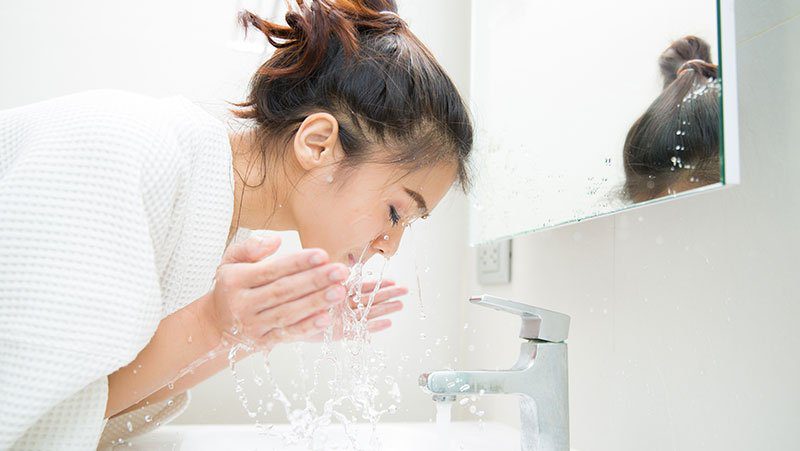
- Frequency of Facials: According to a survey by the American Society for Aesthetic Plastic Surgery (ASAPS), 65% of individuals who receive facials regularly report improvements in skin texture and appearance. This statistic underscores the effectiveness of regular facials in maintaining healthy skin.
- Consumer Preferences: Statista reports that 52% of consumers prefer facials that offer immediate visible results, such as brighter skin or reduced redness. This preference highlights the importance of understanding and adhering to post-facial care recommendations to maximize the immediate benefits.
- Esthetician Recommendations: The National Rosacea Society found that 85% of estheticians recommend a waiting period before washing the face post-facial to ensure optimal outcomes for sensitive skin. This consensus among professionals underscores the significance of adhering to post-treatment advice.
Common Mistakes and How to Avoid Them
- Washing Too Soon: Washing your face too soon after a facial can interfere with the treatment’s benefits. Research from the Journal of Cosmetic Dermatology indicates that premature washing can reduce the efficacy of facial treatments by up to 20%.
- Using Harsh Products: Employing harsh cleansers or exfoliants immediately after a facial can damage the skin. Opt for gentle, hydrating products to support skin recovery. The global market for post-facial skincare products is expanding, with a projected growth rate of 5.7% annually through 2028.
- Skipping Sunscreen: Failing to apply sunscreen can lead to increased sun sensitivity and potential damage. Daily sunscreen use is essential for protecting the skin from UV damage and maintaining the results of your facial treatment.
Conclusion
Washing your face after a facial treatment is a vital step in maximizing the benefits of your skincare regimen and maintaining healthy skin. Understanding the type of facial you received, adhering to recommended waiting periods, and following best practices for post-treatment care can help you achieve and sustain radiant, well-balanced skin.
By implementing a gentle and informed approach to post-facial skincare, you can ensure that you protect your skin from irritation, support its recovery, and enjoy the lasting effects of your facial treatment. Whether you are new to facials or a seasoned pro, following these guidelines will help you make the most of your skincare investments and maintain a healthy, glowing complexion.
